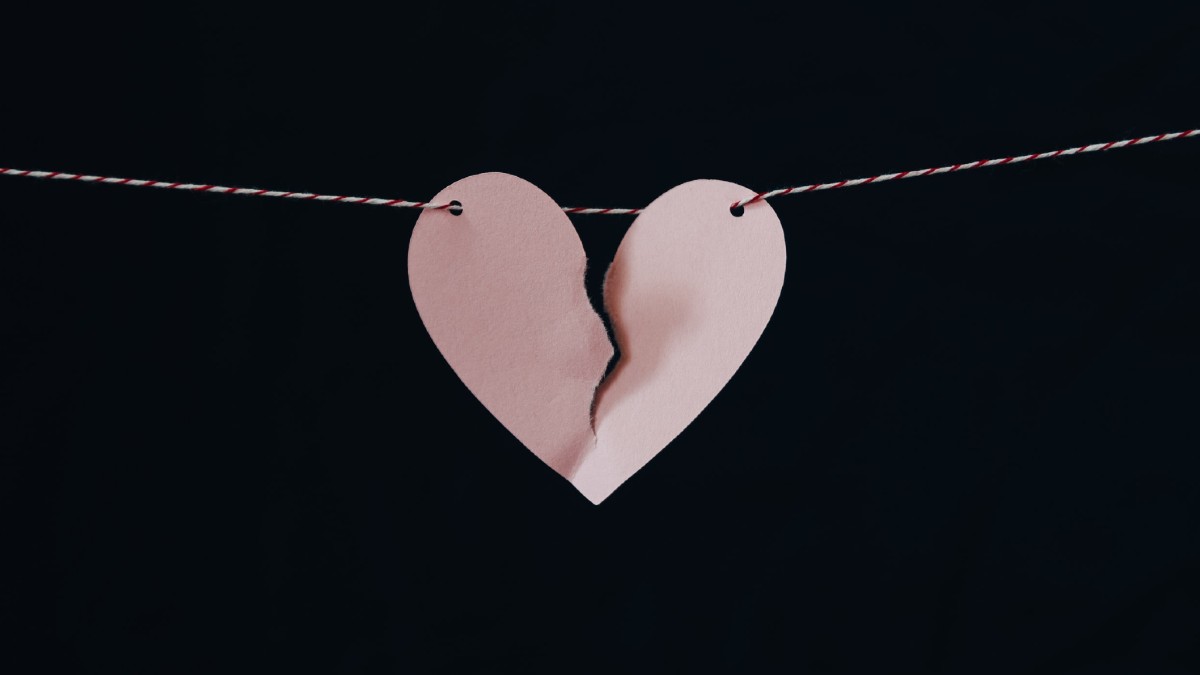
A Psychotherapist Tells You How To Deal With Breakup Guilt In A Healthy Way
The decision to end a relationship is always painful, but don't walk back on it because of guilt.

By Jourdan Travers, LCSW | November 26, 2022
Many people come to therapy asking for advice on how to break up with a partner. They ask questions like:
- "I no longer feel attracted to my partner and want to end things. But they've done nothing wrong. How can I stop feeling guilty?"
- "My fiancé just confessed to cheating on me two years ago. I can't be married to someone like that, but I am worried about what our friends and family might think if I don't go through with the wedding. What should I do?"
- "I've broken up with my partner several times before, but they always find a way back to me. I want to end it for good this time. How can I do this?"
A breakup is hard enough, but when you add in feelings of guilt, the process can become overwhelming. You may feel like you're the one who caused the breakup, or that you could have done more to save the relationship. It's important to remember that relationships end for many reasons, and it's usually not just one person's fault.
Follow these three steps to overcome breakup guilt.
Step #1. Acknowledge your feelings
The first step is to acknowledge that you're feeling guilty about the breakup. This may seem obvious, but it's important to validate your own emotions before trying to move on. Talk to a friend or family member about how you're feeling, or journal about your thoughts and emotions. Once you've acknowledged your guilt, you can start to work through it.
We tend to think of guilt as something that happens within us. However, a classic study published in Psychological Bulletin revealed that it must be understood as a social phenomenon that has, potentially, a positive role to play in our lives.
The study found that guilt can improve relationships between people by motivating them to treat each other well and redistribute emotional distress in an 'equal' way.
Essentially, feeling guilty about a breakup could help you look deep within yourself, understand your own flaws, be kinder to your ex, and learn better ways to navigate your next relationship.
On the flip side, guilt may coax you into giving a failed relationship another chance. Approach this line of thinking with caution, because on-again-off-again relationships can be stressful. One study published in Family Relations found that such relationships could lead to depression, anxiety, and other serious mental health conditions.
Step #2. Identify your role in the breakup
Part of overcoming breakup guilt is understanding your role in the breakup. There may be things that you could have done differently. If you're having trouble identifying your role, talk to a therapist or counselor who can help you work through these feelings.
A study published in Emerging Adulthood mapped out the reasons why adolescents and young people break up and boiled them down to five unique factors:
- Affiliation
- Intimacy
- Autonomy
- Infidelity
- Status
These factors were found to play a role in adult breakups too. So, try to understand which of these factors made you want to break up with your ex. Was it a lack of connection? Was there not enough intimacy in the relationship? Do you feel you lost your individuality when you were with your ex? Was there any cheating? Do you crave to be with someone who has more status than your ex?
Once you pinpoint the reasons why you broke up with your ex, understand that those feelings are real. You are not helping yourself (or your ex) by staying in a relationship that is not fulfilling.
Reaching this stage will allow you to think about what you want in a relationship and also what you are willing to offer to your next partner.
While you may feel guilty, understanding why you did what you did can help you get to the next step in your post-breakup journey.
Step #3. Forgive yourself
Forgiving yourself is an important step in overcoming breakup guilt. Remember that everyone makes mistakes and that relationships end for many reasons — usually it's not just one person's fault. Give yourself some time and space to heal, and be gentle with yourself during this difficult time. Crucially, look to the future, because rumination is not going to change the past.
According to the Handbook of the Psychology of Self-Forgiveness, self-forgiveness is very important to our well-being, which is usually shattered during a breakup.
The key to forgiving yourself effectively is to take Step #2 seriously. Understand yourself to alleviate the feeling of guilt in a healthy way.
Once you do this, be honest about your shortcomings and work on taking steps to better yourself. Work on being kinder to the people who love you, but also to yourself.
A study published in The Journal of Positive Psychology showed that people who forgave themselves were less likely to engage in unhealthy behavior like disordered eating. They also reported feeling less remorseful and generally had a better opinion about themselves than those who did not forgive themselves for their past behaviors.
Conclusion
Breakups are never easy, but when you're dealing with guilt on top of heartbreak, it can feel impossible to move on. If you're struggling with breakup guilt, remember that it's normal to feel this way after a relationship ends. Acknowledge your feelings, identify your role in the breakup, and forgive yourself — these are all important steps in overcoming guilt and moving on with your life.
